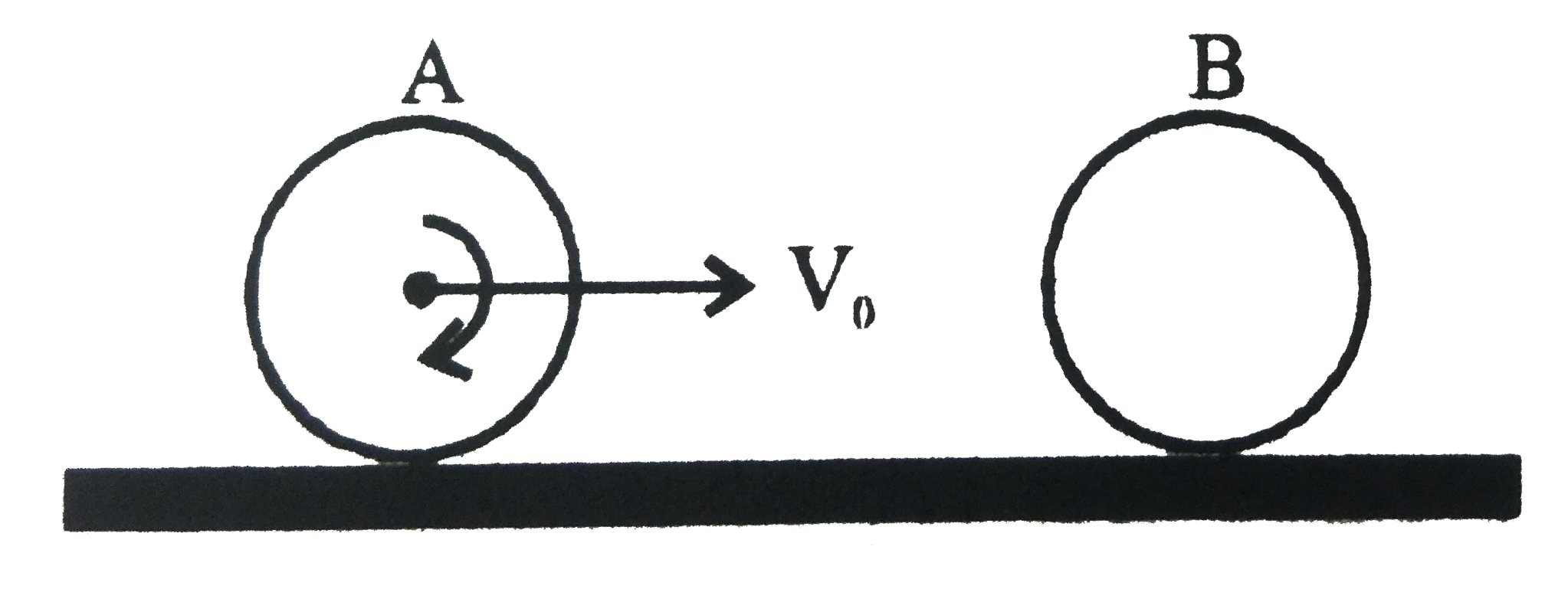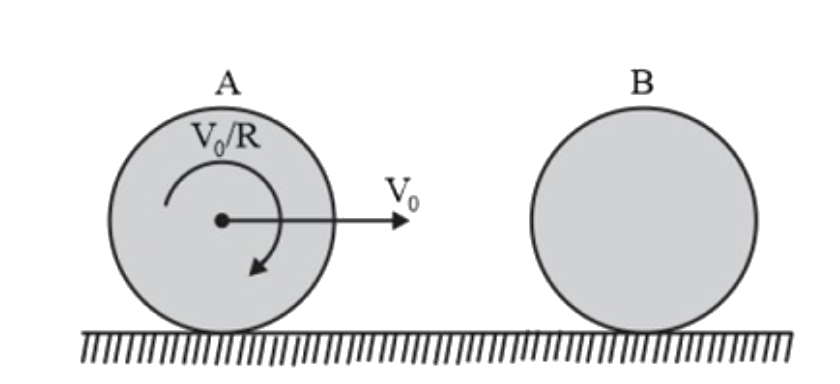A hollow smooth uniform A of mass 'm' rolls without sliding on a smooth horizontal surface collides head to elastically with another stationary smooth solid sphere B of the same mass m and same radius. The ratio of kinetic energy of 'B' to that of 'A' just after the collision is -
 .
.
1:1
2:3
3:2
5:2
The correct Answer is:A
Step by step video, text & image solution for A hollow smooth uniform A of mass 'm' rolls without sliding on a smooth horizontal surface collides head to elastically with another stationary smooth solid sphere B of the same mass m and same radius. The ratio of kinetic energy of 'B' to that of 'A' just after the collision is - . by Physics experts to help you in doubts & scoring excellent marks in Class 12 exams.
Updated on:21/07/2023Topper's Solved these Questions
- TEST PAPERBOOK - ALLENCHAPTER - TEST PAPEREXERCISE - PHYSICS
4 Videos
- TEST PAPERBOOK - ALLENCHAPTER - TEST PAPEREXERCISE - PHYSICS
4 Videos
- SIMPLE HARMONIC MOTIONBOOK - ALLENCHAPTER - SIMPLE HARMONIC MOTIONEXERCISE - Example
1 Videos
- TEST PAPER 1BOOK - ALLENCHAPTER - TEST PAPER 1EXERCISE - PHYSICS
11 Videos
Similar Questions
A solid sphere of mass 10 kg and diameter 5 cm rolls without slipping on a smooth horizontal surface with velocity 5 cm/s. Its total kinetic energy is
View SolutionA particle of mass m and momentum p moves on a smooth horizontal table and collides directly and elastically with a similar particle (of mass m) having momentum −2p. The loss (−) or gain (+) in the kinetic energy of the first particle in the collision is
View Solution
Knowledge Check
A uniform solid sphere A of mass m is rolling without sliding on a a smooth horizontal surface. It collides elastically and head - on with another stationary hollow sphere B of the same mass and radius. Assuming friction to be absent everywhere, the ratio of the kinetic energy of B to that of A just after the collision is
 A5:2B1:1C2:3D3:2
A5:2B1:1C2:3D3:2A solid sphere of mass m and radius R rolls without slipping on a horizontal surface such that vc.m.=v0.
AThe kinetic energy of rotation is 15mv20.BThe total kinetic energy is 710mv20.CThe mechanical energy (assume the ground as reference) is mgR+710mv20.DAll options are correct.A loop of mass M and radius R is rolling on a smooth horizontal surface with speed 'v'. It's total kinetic energy is
A1/2Mv2B3/2Mv2CMv2D1/2MR2ω2
A particle (A) of mass m1 elastically collides with another stationary particle (B) of mass m2. Then :
View SolutionSphere A of mass 'm' moving with a constant velocity u hits another stationary sphere B of the same mass. If e is the co-efficient of restitution, then ratio of velocities of the two spheres vA:vB after collision will be :
View SolutionA solid sphere rolls without slipping on a rough horizontal floor, moving with a speed v. It makes an elastic collision with a smooth vertical wall. After impact
View SolutionA solid sphere rolls without slipping on a rough horizontal floor, moving with a speed v. It makes an elastic collision with a smooth vertical wall. After impact
View SolutionAssertion : A solid sphere cannot roll without slipping on smooth horizontal surface
Reason : If the sphere is left free on smooth inclined surface. It cannot roll without slipping.
View Solution
